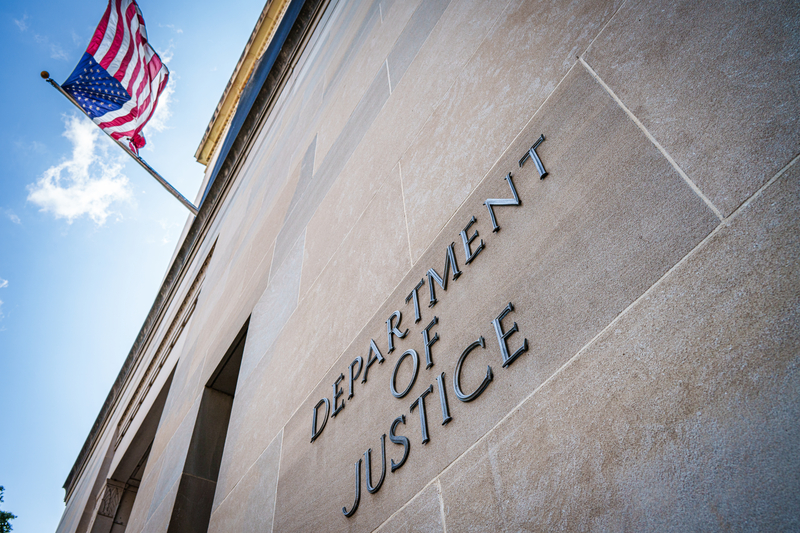The cryptocurrency world has been closely following a legal battle between Ripple Labs, the company behind digital asset XRP, and the SEC.
This lawsuit, which began in December 2020, has become a defining case for the entire cryptocurrency industry. Its outcome could set a significant precedent for how digital assets are regulated in the United States.
The SEC filed a lawsuit against Ripple Labs, plus its CEO Brad Garlinghouse and co-founder Chris Larsen, alleging that they had conducted an unregistered securities offering worth over $1.3 billion through the sale of XRP (with the SEC ultimately seeking $2 billion in fines, penalties and pre-judgement interest from Ripple Labs). The central issue in this case is whether XRP should be classified as a “security”, which would subject it to strict regulatory oversight under US securities laws.
The recent ruling in the case has sent ripples through the cryptocurrency community, marking a significant turning point in the regulatory landscape of digital assets. The US District Court for the Southern District of New York ruled in favour of Ripple Labs in a landmark decision, stating that Ripple’s XRP token is not necessarily a security when sold on public exchanges.
This ruling is, in my opinion, a major victory not just for Ripple, but for the broader cryptocurrency industry, which has long struggled with regulatory uncertainty. Ripple was fined $125m, just a fraction of the amounts sought by the SEC, in addition to an injunction barring it from future violations of Section 5 of the Securities Act.
The Howey Test and its application in this matter
The Howey Test considers a transaction to be an investment contract if it involves:
- An investment of money
- In a common enterprise
- With an expectation of profits derived from the efforts of others.
The SEC argued that XRP met these criteria, making it a security. During its progression, the case has seen several important rulings, one of the most significant being in July 2023 when Judge Analisa Torres made a mixed ruling:
- Programmatic sales on digital asset exchanges for which it received $757.6m: The court ruled that Ripple’s programmatic sales of XRP to the general public through exchanges did not constitute an unregistered securities offering. The judge concluded that buyers of XRP on exchanges did not have a reasonable expectation of profit based solely on Ripple’s efforts, because they didn’t know if they were buying from Ripple or from another seller. Therefore, these sales did not meet the criteria of the Howey Test.
- Institutional sales under written contracts for which it received $728.9m: The court did find, however, that Ripple’s direct sales of XRP to institutional investors were securities transactions. These sales involved sophisticated parties who could reasonably expect to profit from Ripple’s efforts, satisfying the Howey Test.
- Other distributions under written contracts for which it recorded $609m in “consideration other than cash”: The court also ruled that certain distributions of XRP, such as those made to employees as compensation and for services provided, were not securities transactions because they did not involve an investment of money.
As Brad Garlinghouse posted in the wake of the final ruling “This is a victory for Ripple, the industry and the rule of law”. Although the result in the case constitutes a partial victory on the part of both the SEC and Ripple, here’s why I think the biggest winner from the ruling is cryptocurrency.
Clarifying the status of digital assets
One of the most significant aspects of the Ripple v. SEC ruling is the clarification it provides regarding the status of digital assets like XRP. For years, the SEC has applied the Howey Test – a legal standard used to determine whether a transaction qualifies as an “investment contract” – to argue that various cryptocurrencies are securities and thus subject to SEC regulations.
However, the court’s decision acknowledges that not all digital assets fit neatly into the category of a security, especially when they are being sold on secondary markets like public exchanges. This distinction is crucial, because it challenges the blanket approach previously adopted by the SEC, which sought to regulate many cryptocurrencies under securities laws regardless of the context of their sale.
By establishing that XRP sales on public exchanges are not inherently securities transactions, the ruling sets a precedent that could protect other cryptocurrencies from being automatically classified as securities. This reduces the risk of stifling innovation due to overly stringent regulations and gives the industry a clearer framework within which to operate.
Boosting investor confidence
Regulatory uncertainty has been one of the biggest obstacles to mainstream adoption of cryptocurrencies. The fear of sudden crackdowns or retroactive penalties has kept many institutional investors on the sidelines. The Ripple ruling, by providing a more nuanced interpretation of existing laws, helps to alleviate some of these concerns.
With the court rejecting the SEC’s broader interpretation of securities laws, investors can have more confidence that their investments in cryptocurrencies such as XRP won’t suddenly be deemed illegal. This could lead to increased institutional participation in the crypto market, bringing in more liquidity, stability, and legitimacy to the space. In fact, XRP surged in price by 20% immediately after news of the ruling was made public. I believe investor confidence is one of the biggest tenets in ensuring a stable and successful cryptocurrency market.
Encouraging innovation and development
The cryptocurrency industry thrives on innovation. From decentralised finance (DeFi) to non-fungible tokens (NFTs), the sector is constantly evolving. However, innovation has often been hampered by the threat of regulatory action, with companies fearing that their groundbreaking projects could be shut down or heavily penalized.
The Ripple decision is a positive signal that courts may be willing to differentiate between different types of digital asset transactions and recognize the unique characteristics of blockchain technology. This should encourage developers and entrepreneurs to continue pushing the boundaries of what’s possible without the looming fear of indiscriminate regulatory actions.
Pushing for regulatory reform
But the decision in Ripple v. SEC also highlights the need for clearer regulatory guidelines specific to digital assets. The case has underscored the inadequacies of applying decades-old securities laws to a rapidly-evolving technological landscape. As a result, there is growing momentum for regulatory reform that could lead to new laws and rules designed specifically for cryptocurrencies and blockchain technology.
Such reform would provide the industry with the legal clarity it desperately needs while protecting consumers and investors from fraud and manipulation. It would also position the United States as a leader in the global crypto space by creating a more welcoming environment for innovation.
Setting a precedent for future cases
Legal precedents are powerful tools in shaping future judicial decisions. The Ripple case sets a crucial precedent that other courts may look to when deciding similar cases. This means that other cryptocurrency projects facing legal challenges from the SEC or other regulators might benefit from the reasoning applied in this ruling.
By establishing that certain transactions involving digital assets are not securities, the court has provided a roadmap for other crypto companies to defend themselves against regulatory overreach. This could lead to a more balanced approach to crypto regulation that fosters growth while ensuring compliance with the law.
Final thoughts
Taken as a whole, the Ripple v. SEC decision is, from my perspective, a watershed moment for the cryptocurrency industry. By clarifying the status of digital assets, boosting investor confidence, encouraging innovation, pushing for regulatory reform, plus setting a legal precedent, this ruling has the potential to reshape the future of cryptocurrency regulation in a way that benefits the entire ecosystem.
While further legal challenges are possible (although the SEC has decided not to appeal the recent ruling – an acceptance of defeat, in my opinion), the initial decision represents a significant step forward for the industry. This signals a more mature and nuanced approach to digital assets in the United States (which may, potentially, transcend onto a global stage). A global uniform approach, I believe, would benefit the wider cryptocurrency and digital assets landscape: perhaps this ruling will help to pave the way for that to happen.
Harley Thomas is a forensic accountant and senior investigator at Martin Kenney & Co (MKS), a BVI litigation practice which specialises in global asset recovery cases.














